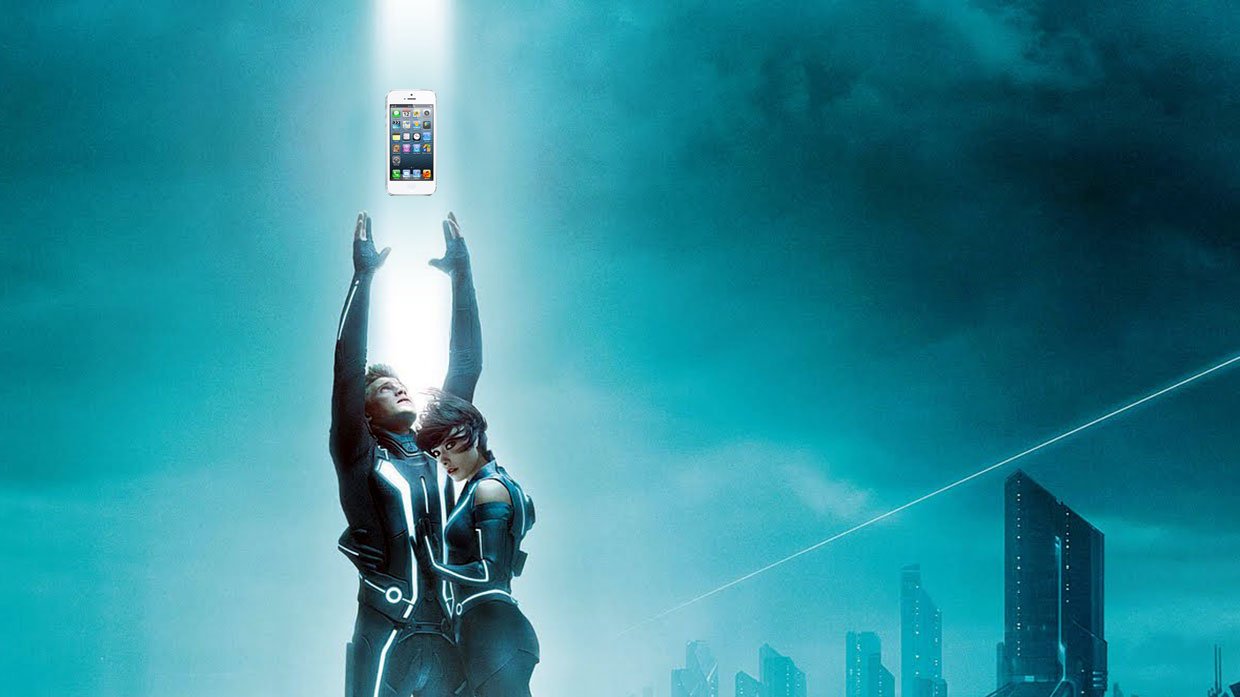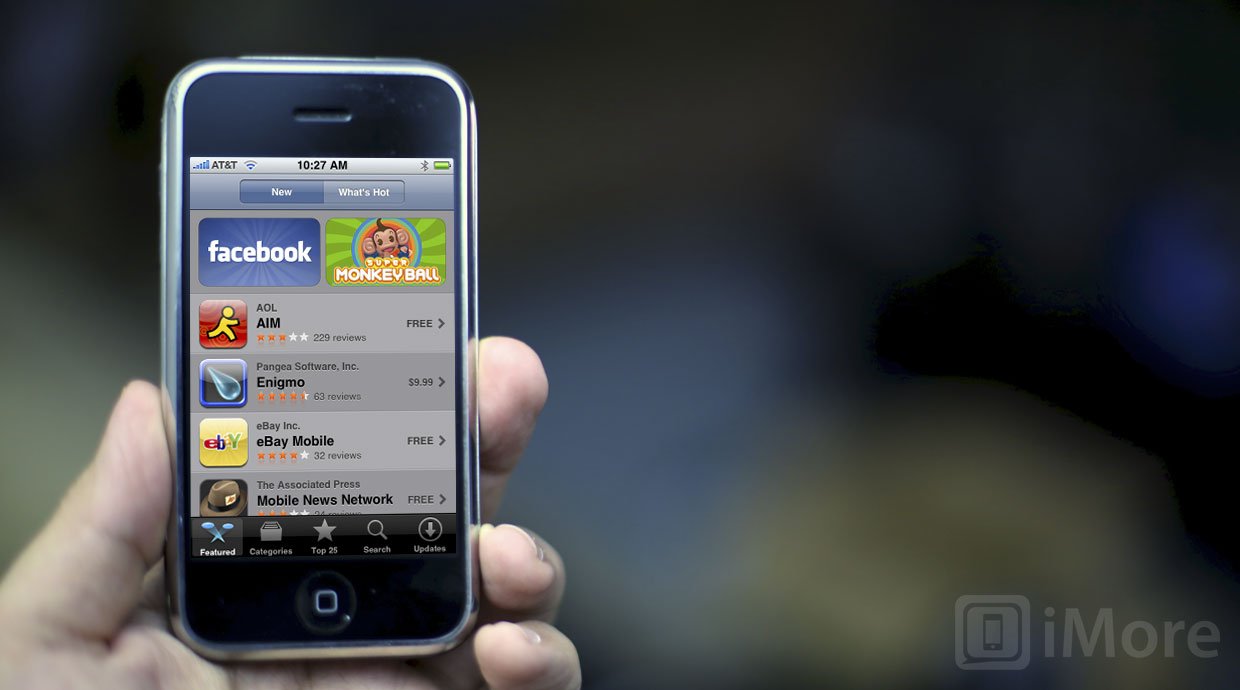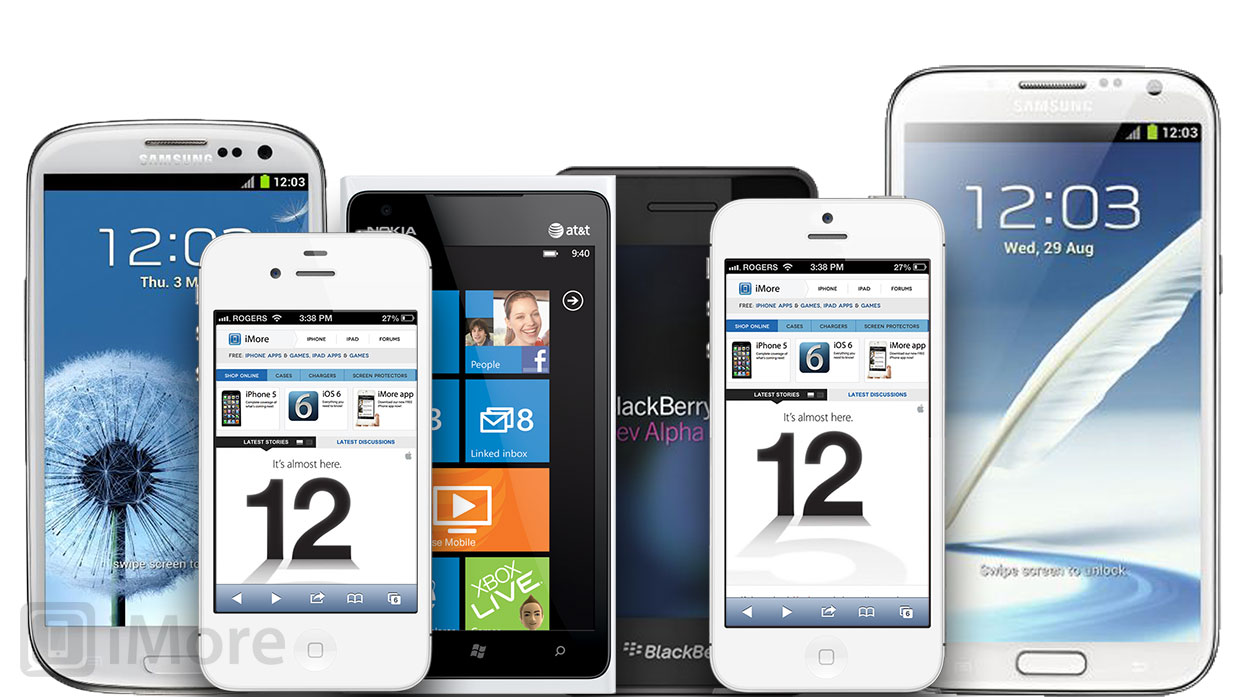iPhone or something else: Which phone should you get?

iMore offers spot-on advice and guidance from our team of experts, with decades of Apple device experience to lean on. Learn more with iMore!
You are now subscribed
Your newsletter sign-up was successful
Just because Apple has released the new iPhone 5 doesn't mean you have to race off and get it. Crazy, I know, particularly coming from the biggest iPhone enthusiast site on the web, but that just goes to show you how true it is. When the time comes for you to get your next phone, whether it's today or next year, and iPhone or something else, you should look at what's on the market and decide what best suits your needs.
Upgrading from an older iPhone

If you're currently using an older iPhone, especially an original iPhone or iPhone 3G your contract has likely long since expired, you device has long since fallen out of OS updates, and you can and should get a new iPhone at the discounted price. Pricing starts at zero (0) dollars for the iPhone 4 on most carriers. Do it.
If you bought an original iPhone 3GS, the same advice applies. Even though the iPhone 3GS can run iOS 6, it can't run it well. If you bought an iPhone 3GS in the last year, you may or may not qualify for full upgrade pricing, but it's worth checking just in case. The difference even between an iPhone 3GS and an iPhone 4, much less iPhone 5, are stratospheric.
For iPhone 4 owners, the same advice applies. If you can get full upgrade pricing, a $100 iPhone 4S is a nice upgrade and a $200+ iPhone 5 is a fantastic upgrade.
A new iPhone will run all the same apps and play all the same content as your old iPhone, only far, far, far better.
Upgrading from an iPhone, iPhone 3G, iPhone 3GS, or iPhone 4 is almost a no brainer.
Upgrading from an iPhone 4S to iPhone 5

If you're using an iPhone 4S, the upgrade question is much less clear. You're probably still on contract with your carrier, and these days they're not always rushing to give you an early upgrade or full discount. (Pro tip: Call straight into the retention department, don't bother with regular customer service, and make them understand your paying the every month for the next few years depends on them helping you get a new phone today.) And that's once you decide it's even worth it. Here's what you'd get with the iPhone 5:
iMore offers spot-on advice and guidance from our team of experts, with decades of Apple device experience to lean on. Learn more with iMore!
- LTE/DC-HSPA radio for super fast internet. If you hate waiting for web pages to load, or if you do a lot of tethering, it's hugely worth it.
- 16:9 wide screen. If older iPhone screens were always too small and too cramped for you, you might like the longer one on the iPhone 5.
- It's faster and better. For some people performance and/or appearance matters. The iPHone 5 is twice as fast as the iPhone 4S, and it's got a new, two-tone design. You'll spend less time waiting for apps, and all your friends will know you have the new phone.
In other words, the iPhone 5 is not a compelling upgrade for iPhone 4S users unless it fixes a specific problem like LTE or screen size.
Upgrading from Android, BlackBerry, webOS, or Windows Phone to iPhone 4S

If your current phone of choice runs Android, Windows Phone, or is a BlackBerry, here's where it gets tricky. If you're not on contract, it's easier. If you are, you need to weigh the pros and cons and see if the features you get outweigh the penalties you'll have to pay.
- The iPhone 5 isn't as customizable as Android, so if you like widgets and replacement keyboards and ROM flashing, you'll be disappointed.
- The iPhone 5 doesn't have BBM (BlackBerry Messenger), so if that's what your friends use you'll be out of touch -- and out of luck. iMessage will let you talk with other iOS users in an SMS/MMS type way, and there are cross-platform apps, but none of them are BBM.
- The iPhone 5 only comes in one style. No sliders, no flips, no hardware keyboards of any kind, and no option for a bigger than 4-inch screen.
But iPhone has a lot going for it as well.
- The iPhone 5 has multiple layers but the first layer is so incredibly easy to use that the most non-tech savvy of people, people who are moving up from feature phones, can pick it up and get going with it immediately. At the same time it's highly appealing to expert and veteran smartphone users who want to spend their time getting things done, not getting their phones to do things.
- The iPhone 5 has iTunes and now iCloud, which does a lot of what iTunes used to but without the cable, lets you easily sync your existing content and also gives you access not only to the App Store but iTunes music, movies, TV shows, podcasts, iTunes U (University) and overall more content in more parts of the world than any other service.
- The iPhone 5 gets software updates whenever Apple pushes them out. There's no waiting for manufacturers or carriers to decide if they're going to bother giving them to your phone or not. They just work.
- The iPhone 5, if you live near an Apple Retail Store and you have a problem with your phone, can often be fixed on the spot. There's no passing the buck between carrier and manufacturer, there's no sending your phone away for lengthy repairs. You make a Genius Bar appointment, you show up, they fix your phone or swap it for a new one (if you're still under warranty or Apple Care). They'll also help you set it up and teach you how to use it. If you're new to phones, this is the single best reason to go Apple.
- The iPhone 5 ties into Apple's entire ecosystem. Apple itself creates a ton of other products to supplement the iPhone, including Mac computers, iPods, iPads, a ton of software, and much, much more.
It's also important to realize that a lot of phones can change a lot over the course of a year. New devices will just keep arriving, so make sure you check for the latest
If there's some limitation when it comes to the iPhone that you can't live with, or if you just don't like Apple, don't get an iPhone. For example, if you like to tinker and want your phone, your way, don't get an iPhone.
Otherwise, get an iPhone. For most people it remains the best first smartphone on the planet.
Upgrading from a feature phone to iPhone 5.
Pretty soon all phones will be smart phones. It's inexorable. There are only two real questions. One is when you become part of the transition -- now when you choose to, or later when you absolutely have to. Two is what phone you'll transition too. Data charges on a smartphone will mean significantly higher monthly bills, though enable you to do far more than you could on a flip or candybar phone.
Given that it's inevitable, once you decide to take the smartphone plunge, the iPhone is a great place to start. It can be as simple as a feature phone if that's what you want, or as powerful as a true pocket computer,
Either way, it's a great choice.
iPhone 5 buyers guide

Rene Ritchie is one of the most respected Apple analysts in the business, reaching a combined audience of over 40 million readers a month. His YouTube channel, Vector, has over 90 thousand subscribers and 14 million views and his podcasts, including Debug, have been downloaded over 20 million times. He also regularly co-hosts MacBreak Weekly for the TWiT network and co-hosted CES Live! and Talk Mobile. Based in Montreal, Rene is a former director of product marketing, web developer, and graphic designer. He's authored several books and appeared on numerous television and radio segments to discuss Apple and the technology industry. When not working, he likes to cook, grapple, and spend time with his friends and family.
